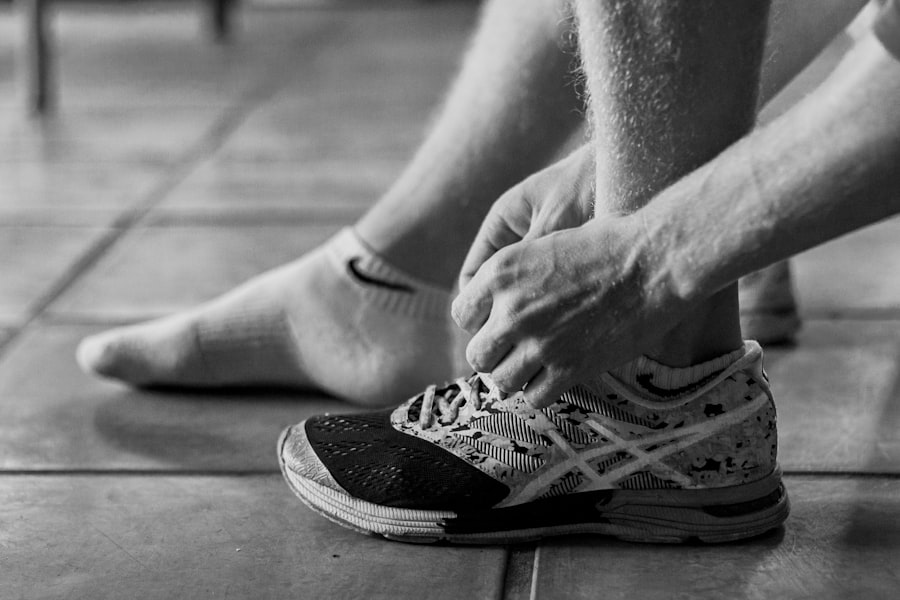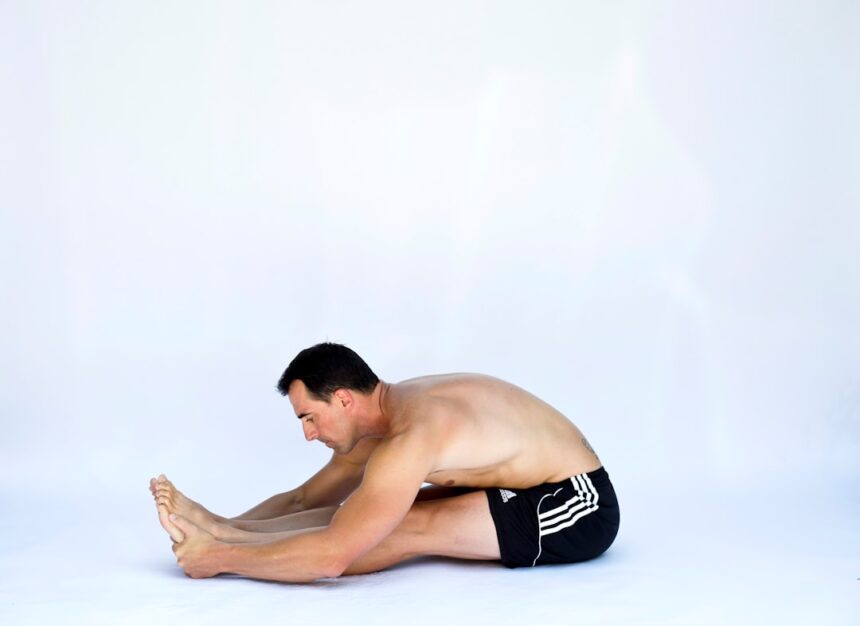The vagus nerve is one of the most significant components of your autonomic nervous system, which governs involuntary bodily functions such as heart rate, digestion, and respiratory rate. This long, wandering nerve extends from your brainstem down through your neck and into your abdomen, branching out to various organs along the way. Its name, derived from the Latin word for “wandering,” aptly describes its extensive reach throughout your body.
The vagus nerve plays a crucial role in maintaining homeostasis and regulating your body’s response to stress. When it comes to anxiety, understanding the vagus nerve’s function can provide valuable insights into how you can manage your symptoms more effectively. Anxiety often triggers a fight-or-flight response, activating the sympathetic nervous system and leading to physical symptoms such as increased heart rate and shallow breathing.
However, the vagus nerve is integral to the parasympathetic nervous system, which promotes relaxation and recovery. By stimulating the vagus nerve, you can counteract the effects of anxiety and stress, fostering a sense of calm and well-being. This connection between the vagus nerve and anxiety highlights the importance of exploring techniques that can enhance its function, ultimately leading to improved mental health.
Key Takeaways
- The vagus nerve is a key part of the nervous system that plays a significant role in regulating stress and anxiety.
- Vagus nerve exercises, such as deep breathing and meditation, can help calm anxiety by stimulating the vagus nerve.
- Breathing exercises are an effective way to activate the vagus nerve and reduce anxiety in the short term.
- Yoga and meditation have been shown to stimulate the vagus nerve, providing long-term benefits for anxiety relief.
- Dietary and lifestyle changes, as well as professional therapies, can support vagus nerve health and provide long-term anxiety management.
The Connection Between the Vagus Nerve and the Nervous System
Your nervous system is a complex network that coordinates your body’s responses to internal and external stimuli. It consists of two main branches: the sympathetic nervous system, which prepares your body for action, and the parasympathetic nervous system, which helps you relax and recover. The vagus nerve is a key player in the parasympathetic branch, acting as a communication highway between your brain and various organs.
This intricate relationship allows for a delicate balance between stress and relaxation, which is essential for maintaining emotional stability. When you experience anxiety, your sympathetic nervous system often takes over, leading to heightened arousal and tension. In contrast, the vagus nerve works to activate the parasympathetic response, promoting feelings of calmness and safety.
By understanding this connection, you can begin to appreciate how stimulating the vagus nerve can help you regain control over your anxiety. Techniques that target this nerve can help shift your body from a state of stress to one of relaxation, allowing you to navigate life’s challenges with greater ease.
The Role of the Vagus Nerve in Regulating Stress and Anxiety

The vagus nerve plays a pivotal role in regulating your body’s stress response. When activated, it releases neurotransmitters that promote feelings of calmness and well-being. This process is essential for counteracting the physiological effects of stress and anxiety.
For instance, when you are under stress, your body releases cortisol and adrenaline, hormones that prepare you for immediate action but can also lead to feelings of overwhelm if they remain elevated for too long. The vagus nerve helps mitigate these effects by signaling your body to return to a state of equilibrium. Moreover, research has shown that individuals with higher vagal tone—an indicator of how well your vagus nerve functions—tend to experience lower levels of anxiety and stress.
This suggests that enhancing vagal tone could be a beneficial strategy for managing anxiety symptoms. By focusing on activities that stimulate the vagus nerve, you can create a more resilient emotional state, allowing you to respond to stressors with greater composure and clarity.
How Vagus Nerve Exercises Can Help Calm Anxiety
| Benefits of Vagus Nerve Exercises for Anxiety | Explanation |
|---|---|
| Reduced Stress Response | Vagus nerve exercises can help regulate the body’s stress response, leading to reduced anxiety levels. |
| Improved Heart Rate Variability | These exercises can enhance heart rate variability, promoting relaxation and reducing anxiety symptoms. |
| Enhanced Mood | Stimulating the vagus nerve may lead to improved mood and decreased feelings of anxiety and depression. |
| Lowered Inflammation | Vagus nerve stimulation has been linked to reduced inflammation, which can contribute to a calmer state of mind. |
Incorporating vagus nerve exercises into your routine can be an effective way to manage anxiety. These exercises are designed to stimulate the vagus nerve directly or indirectly, promoting relaxation and reducing stress levels. Engaging in these practices regularly can help you build resilience against anxiety triggers, allowing you to respond more calmly in challenging situations.
The beauty of these exercises lies in their accessibility; many can be performed anywhere and at any time. One popular method for stimulating the vagus nerve is through deep breathing exercises. By focusing on slow, intentional breaths, you can activate the parasympathetic nervous system and encourage a sense of calm.
Other techniques include gentle movement practices like yoga or tai chi, which not only promote physical well-being but also enhance your mind-body connection. As you explore these exercises, you’ll likely find that they not only help alleviate anxiety but also contribute to an overall sense of well-being.
Simple Vagus Nerve Stimulation Techniques for Anxiety Relief
There are several simple techniques you can employ to stimulate your vagus nerve and alleviate anxiety symptoms. One effective method is cold exposure; immersing your face in cold water or splashing cold water on your face can activate the vagus nerve and trigger a relaxation response. This technique is particularly useful when you’re feeling overwhelmed or anxious in the moment.
Another technique involves humming or chanting. The vibrations created by these activities stimulate the vagus nerve and promote a sense of calm. You might find it helpful to incorporate humming into your daily routine—whether in the shower or while driving—to reap its benefits.
Additionally, engaging in social interactions can also stimulate the vagus nerve; laughter and meaningful conversations with friends or loved ones can enhance feelings of connection and reduce anxiety.
Breathing Exercises to Activate the Vagus Nerve and Reduce Anxiety

Breathing exercises are among the most effective ways to activate the vagus nerve and reduce anxiety levels. One popular technique is diaphragmatic breathing, which involves breathing deeply into your diaphragm rather than shallowly into your chest. To practice this exercise, find a comfortable position—either sitting or lying down—and place one hand on your chest and the other on your abdomen.
As you inhale deeply through your nose, focus on expanding your abdomen rather than raising your chest. Exhale slowly through your mouth, allowing your body to relax with each breath. Another effective breathing technique is box breathing, which involves inhaling for a count of four, holding for four counts, exhaling for four counts, and then holding again for four counts before repeating the cycle.
This structured approach not only calms your mind but also activates the vagus nerve by promoting a steady rhythm in your breathing pattern. By incorporating these breathing exercises into your daily routine, you can create a powerful tool for managing anxiety whenever it arises.
The Benefits of Yoga and Meditation for Vagus Nerve Stimulation
Yoga and meditation are two practices that have gained popularity for their ability to promote relaxation and reduce anxiety. Both activities engage the vagus nerve by encouraging deep breathing and mindfulness, which are essential components of activating the parasympathetic nervous system. Through yoga poses and meditation techniques, you can cultivate awareness of your body and breath, fostering a sense of calm that permeates both mind and body.
In yoga, specific poses such as forward bends or gentle twists can stimulate the vagus nerve while promoting relaxation. Additionally, incorporating mindfulness meditation into your routine allows you to observe your thoughts without judgment, creating space for emotional regulation. As you develop a consistent practice in yoga or meditation, you’ll likely notice an improvement in your overall mental health and resilience against anxiety.
Using Acupuncture and Acupressure to Target the Vagus Nerve for Anxiety Relief
Acupuncture and acupressure are traditional Chinese medicine practices that can effectively target the vagus nerve for anxiety relief. Acupuncture involves inserting thin needles into specific points on the body to stimulate energy flow and promote healing. Certain acupuncture points are known to influence the vagus nerve directly, helping to alleviate symptoms of anxiety by promoting relaxation.
Acupressure operates on similar principles but uses manual pressure instead of needles. By applying pressure to specific points on your body—such as those located on your wrists or between your eyebrows—you can stimulate the vagus nerve and encourage a sense of calmness. Both practices have been shown to reduce stress levels significantly, making them valuable tools in managing anxiety.
Dietary and Lifestyle Changes to Support Vagus Nerve Health and Reduce Anxiety
Your diet and lifestyle choices play a crucial role in supporting vagus nerve health and reducing anxiety symptoms. Consuming a balanced diet rich in omega-3 fatty acids, probiotics, and antioxidants can positively impact your mental health by promoting optimal brain function and reducing inflammation in the body. Foods such as fatty fish, leafy greens, nuts, seeds, yogurt, and fermented foods are excellent choices that support both physical health and emotional well-being.
In addition to dietary changes, adopting a lifestyle that prioritizes regular physical activity can enhance vagal tone. Exercise has been shown to stimulate the vagus nerve while also releasing endorphins—natural mood lifters that combat feelings of anxiety. Incorporating activities such as walking, dancing, or swimming into your routine can significantly improve both your physical health and mental resilience.
Professional Vagus Nerve Stimulation Therapies for Severe Anxiety
For individuals experiencing severe anxiety that does not respond to traditional therapies or lifestyle changes, professional vagus nerve stimulation (VNS) therapies may be an option worth exploring. VNS involves implanting a small device under the skin that sends electrical impulses to the vagus nerve at regular intervals. This therapy has been shown to reduce symptoms of treatment-resistant depression and anxiety in some patients.
While VNS is not suitable for everyone, it represents an innovative approach to managing severe anxiety disorders when other treatments have failed.
Incorporating Vagus Nerve Exercises into Your Daily Routine for Long-Term Anxiety Management
To effectively manage anxiety over the long term, it’s essential to incorporate vagus nerve exercises into your daily routine consistently. Start by identifying specific techniques that resonate with you—whether it’s deep breathing exercises, yoga practices, or mindfulness meditation—and set aside dedicated time each day to engage in these activities. Consistency is key; just as physical exercise strengthens your body over time, regular practice of these techniques will enhance your ability to manage anxiety effectively.
Additionally, consider integrating small moments throughout your day where you can practice these techniques spontaneously—such as taking a few deep breaths before responding to an email or engaging in a brief stretching session during breaks at work. By weaving these practices into both structured routines and everyday moments, you’ll cultivate a greater sense of calmness and resilience against anxiety triggers over time. In conclusion, understanding the role of the vagus nerve in regulating anxiety opens up new avenues for managing stress effectively.
As you embark on this journey toward better mental health, remember that consistency is vital; integrating these practices into your daily life will yield lasting benefits in managing anxiety over time.
In recent years, there has been growing interest in the role of the vagus nerve in managing anxiety, with various exercises being recommended to stimulate this nerve and promote relaxation. These exercises, which can include deep breathing, humming, and cold exposure, are designed to activate the parasympathetic nervous system, thereby reducing stress and anxiety levels. For those interested in exploring this topic further, a related article can be found on Unplugged Psychology’s website, which delves into the science behind these exercises and their potential benefits. You can read more about it by visiting this page.
🧠 Your Trauma Is Rewiring Your Brain: Here’s How to Undo It | A Neuroplasticity & Somatic Guide
FAQs
What is the vagus nerve?
The vagus nerve is the longest cranial nerve in the body and plays a key role in the parasympathetic nervous system, which helps regulate many bodily functions including heart rate, digestion, and relaxation.
How does the vagus nerve affect anxiety?
The vagus nerve is involved in the body’s “rest and digest” response, which helps to counteract the “fight or flight” response that can contribute to anxiety. Stimulating the vagus nerve can help to calm the body and reduce feelings of anxiety.
What are vagus nerve exercises for anxiety?
Vagus nerve exercises for anxiety are techniques and practices that aim to stimulate the vagus nerve, such as deep breathing, meditation, yoga, and certain physical exercises.
How do vagus nerve exercises help with anxiety?
Vagus nerve exercises help with anxiety by activating the parasympathetic nervous system, which can counteract the body’s stress response and promote relaxation. This can help to reduce feelings of anxiety and promote a sense of calm.
Are vagus nerve exercises effective for anxiety?
While individual results may vary, many people find that incorporating vagus nerve exercises into their daily routine can help to reduce feelings of anxiety and promote overall well-being. It is important to consult with a healthcare professional before starting any new exercise or relaxation routine.




